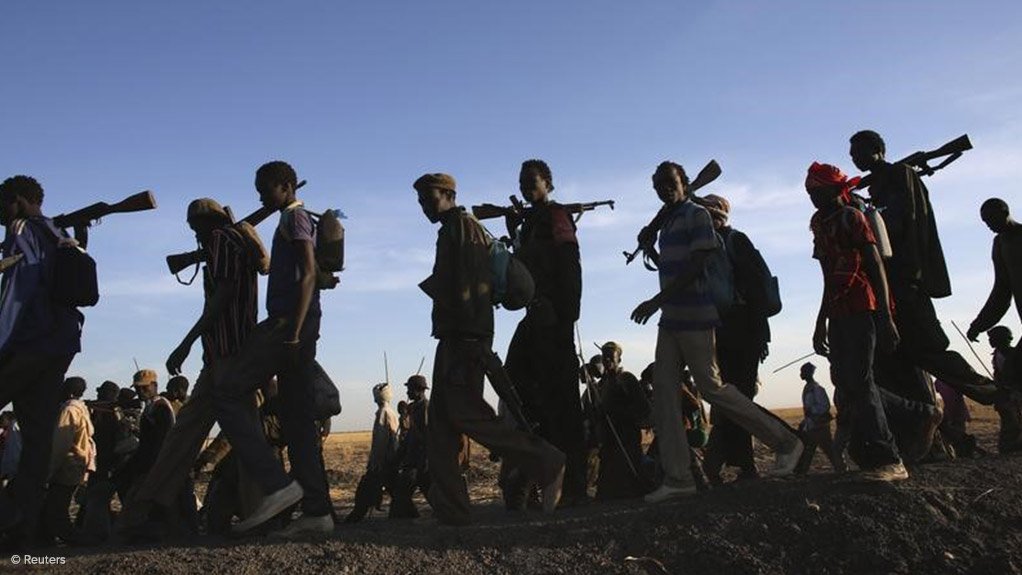Sudan’s paramilitary Rapid Support Forces (RSF) group is using large-scale proceeds from gold mining to fund its devastating war against the nation’s army, according to United Nations investigators.
The UN report also described as “credible” allegations that the United Arab Emirates (UAE) has helped supply the RSF via neighbouring Chad, citing local witnesses — something the Gulf nation denies. And it said violence by the RSF and allied militias may have killed as many as 15,000 people in one city in the Darfur region in 2023 — a figure that would outstrip the UN’s previous toll for the entire nine-month conflict.
The panel of experts report, which Bloomberg News obtained and hasn’t yet been made public, is one of the most detailed high-level accounts to date on the RSF’s activities. The paramilitary group and Sudan’s army turned on each other in April in a battle for control of the North African nation, sparking a refugee crisis and pushing the country to the verge of famine.
An RSF spokesman didn’t immediately respond to questions. The UAE’s foreign ministry said in a statement that the country “is not supplying arms and ammunition to any of the warring parties, and does not take sides in the current conflict.”
“The UAE is firmly committed to implementing UN resolutions and abiding by the UN sanctions regime on Sudan,” the ministry said.
The UAE added that it has invited UN experts to visit Amdjarass, the city in Chad where it’s set up a field hospital that’s a “critical lifeline for civilians,” and stressed its repeated calls for de-escalation and a permanent cease-fire.
The RSF, which has its roots in the janjaweed militias that Sudan’s government marshaled to crush a rebellion in Darfur in the early 2000s, has benefited from a complex web of financing and new military supply lines through eastern Chad, Libya and South Sudan, according to the UN experts. It now controls most of Darfur, a western region about the size of France.
Financial networks set up by the RSF before and during the conflict enabled it to acquire weapons, fund media campaigns, pay salaries and buy backing from political and armed groups, the experts said.
The RSF has long controlled most of Sudan’s gold trade. Despite production cuts caused by the war, the precious metal remains a source of revenue for both sides, according to the investigation.
Giving one example, the experts said a Sudanese gold trader in Dubai associated with the RSF received 50 kilograms of gold in May — the first consignment since the war broke out. The RSF continues to mine concessions in Darfur, they said.
FRESH WEAPONRY
From July onward, the RSF deployed heavy and sophisticated weapons including drones, howitzers, multiple-rocket launchers and anti-aircraft weapons such as MANPADS, the experts found. The new firepower had a major impact on the balance of forces in both Darfur and the wider country, they said.
As the RSF and allied militias advanced. they targeted internally-displaced people as well as civilian neighborhoods and medical facilities, and committed sexual violence against girls and women, according to the report.
Between 10,000 and 15,000 people were killed in El-Geneina, capital of the West Darfur region, the experts said. The UN’s most recent public estimate of the death toll for the war stands at about 12,000.
International efforts to broker an end to the conflict have foundered. Warring parties’ entrenched positions, the number of mediation tracks and competing regional interests are among the reasons, the experts said.
EMAIL THIS ARTICLE SAVE THIS ARTICLE
To subscribe email subscriptions@creamermedia.co.za or click here
To advertise email advertising@creamermedia.co.za or click here











